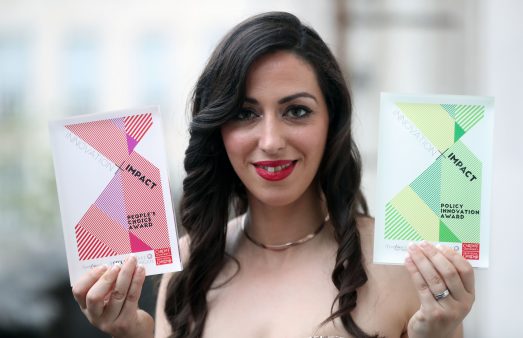My Cardiff is… innovation at 593 Celsius
14 November 2017
Dr Sabrina Cohen-Hatton (PhD 2014) Honorary Research Fellow and Deputy Assistant Commissioner, London Fire Brigade.
For Sabrina Cohen-Hatton, life as a PhD student was pretty intense. “I’d be in the lab running experiments at 5am, then do a full shift in work, go home for dinner and, after putting my baby to bed, be back out at 7pm for a night shift at the University.”
Though strenuous, such a hectic schedule will sound familiar to many doctoral students. Where Sabrina differed is that her day job involved commanding the Fire Brigade’s response to structures burning at temperatures of almost 600 degrees Celsius. She joined the Fire Brigade aged just 18, and completed her undergraduate, masters and PhD degrees while a serving officer.
“The number of years you’re working on a PhD… the amount of time you spend with your supervisor can end up lasting longer than a lot of marriages,” she jokes.
“Luckily for me, my supervisor [Professor Rob Honey] gave me the best science training I could ever ask for.”
Based in Cardiff’s School of Psychology, Sabrina’s research field was behavioural neuroscience. Her work was focused on the ways in which everyday environmental factors can influence the decision-making process.
“It was through this research that I came up with the idea of fitting fire officers’ helmets with GoPro cameras,” she explains. “It gave helpful insight into firefighters’ decision making and it’s actually led to change in national policy.”
Now Deputy Assistant Commissioner with the London Fire Brigade, Sabrina has been implementing her academic findings as part of “large scale national collaboration between the fire brigade and Cardiff University”.
The innovation has been lauded internationally, with Sabrina picking up an American Psychological Association award in Washington, D.C. this year. She dedicated this award to “all London firefighters who worked during the Grenfell Tower incident”.
The 20-hour days she put in as an academic on top of her day job – in stints of three weeks at a time – may have been strenuous, but she has the satisfaction of knowing her research has made, and continues to make, a real difference.
“I firmly believe the result of the work I’ve done with Cardiff University means we’ve been able to make fire fighters safer. That’s the crucial factor for me; I’ve been able to improve the landscape of a job I’m very passionate about.”
- January 2026
- November 2025
- September 2025
- July 2025
- June 2025
- May 2025
- April 2025
- March 2025
- February 2025
- January 2025
- October 2024
- September 2024
- August 2024
- July 2024
- June 2024
- May 2024
- April 2024
- March 2024
- February 2024
- January 2024
- December 2023
- November 2023
- October 2023
- September 2023
- August 2023
- July 2023
- June 2023
- May 2023
- April 2023
- March 2023
- February 2023
- January 2023
- November 2022
- October 2022
- September 2022
- August 2022
- July 2022
- June 2022
- May 2022
- April 2022
- March 2022
- February 2022
- January 2022
- December 2021
- November 2021
- October 2021
- September 2021
- August 2021
- July 2021
- June 2021
- May 2021
- April 2021
- March 2021
- February 2021
- January 2021
- December 2020
- November 2020
- October 2020
- September 2020
- August 2020
- July 2020
- June 2020
- May 2020
- April 2020
- March 2020
- January 2020
- December 2019
- November 2019
- October 2019
- September 2019
- August 2019
- July 2019
- May 2019
- April 2019
- March 2019
- February 2019
- January 2019
- December 2018
- November 2018
- October 2018
- September 2018
- August 2018
- July 2018
- June 2018
- May 2018
- April 2018
- March 2018
- February 2018
- December 2017
- November 2017
- October 2017
- September 2017
- August 2017
- July 2017
- June 2017
- May 2017
- April 2017
- March 2017
- February 2017
- January 2017
- November 2016
- October 2016
- September 2016
- July 2016
- June 2016
- May 2016
- April 2016
- March 2016
- February 2016
- January 2016
- December 2015
- November 2015
- October 2015
- September 2015
- August 2015
- January 2015
- December 2014
- November 2014
- September 2014
- August 2014
- May 2014